

16 April, 2015. 17:55
ERROL PARKER | Editor-at-large | Contact
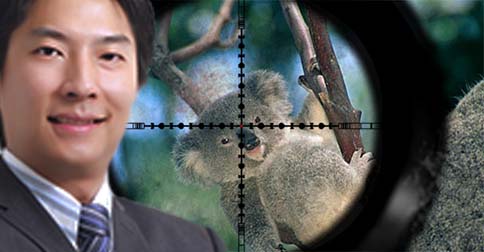
A CONTROVERSIAL CHINESE billionaire has set his sights on Dubbo’s Taronga Western Plains Zoo this week, after placing a $A125M offer on the iconic landmark.

Known for his love of hunting big game, Guangzhou textile magnate Bei Ting Gui has spent much of his fortune acquiring parcels of land around the world.
It’s not known at this stage what the Chinese oligarch’s plan is for Dubbo’s slice of paradise, but it’s got many locals and conservationists on edge.
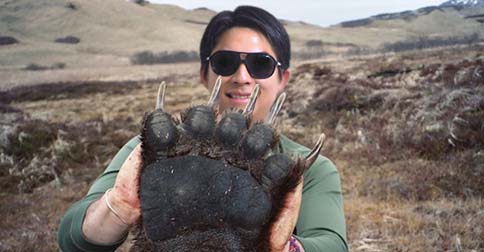
NSW Premier Mike Baird put the 750ac site out for expressions of interest earlier this month after he looks to repair the damage to the budget done by the previous corrupt Labor government.
However, Mr Baird has come under intense fire from both the opposition and animal rights groups after Mr Gui revealed to media outlets in China that once he gains control of the famed zoo, he’s planning on making it a “one stop shop” resort for the world’s wealthy businessmen to come and relax and hunt.
Both the premier and Mr Gui have emphatically denied the rumours surround the Chinese national’s plan for the site, as Gui stated on radio this morning in Hong Kong:
“I see this as an investment,” said Mr Gui.
“It’s well known that I have a penchant for hunting large game – that statement is true,”
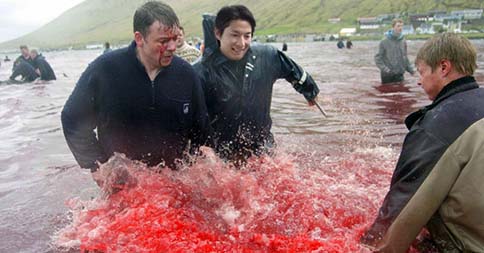
“But I wouldn’t, personally, invest in a commercial hunting operation, in Australia anyway,”
“The Greens are too powerful.”
The thirst for big game blood has increased dramatically since economies began to recover after the GFC, which has alarm bells ringing at animal rights groups around the world.
One prominent Australian animal rights organisation has called for the federal government to intervene.
Sally Gibbonables has been the chairwoman of the Animals’ Equality Fund for six years has lashed out today at the state government for even allowing Mr Gui, with his extended history of violence against animals, to place an offer on the table.
“It’s sickening,” said Ms Gibbonables
“Why would they [state government] even entertain him about it?”
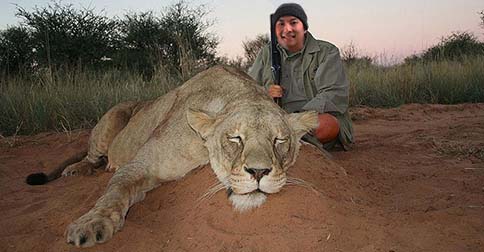
“We need to go over his head on this one, I’m calling for the federal government to launch a senate inquiry or even a referendum on this – the animals can’t protect themselves.” she said.
The news has been met with a mixed response with Dubbo locals, who say it could either benefit or ruin the country metropolis.
Church Street fashion retailer Edwina Simpson says that the rise in number of wealthy shoppers to the town’s boutique strip would be “a great thing”.
“The cost of living in Dubbo is going up and up and up and up!” said the 23-year-old.
“They used to sell a block of 30 Red Bitter cans at the Thirsty Camel for $28 on Tuesdays – now it’s $40,”
“But if I can flog my “local” made hessian tunics for $250, that turns the tables for me.” she said.
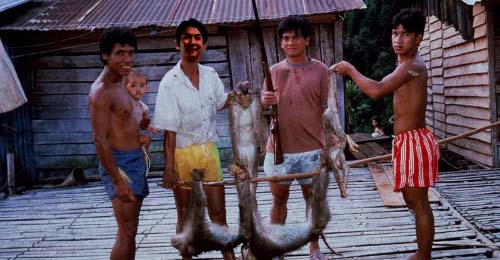
Talbragar Street stock and station agent Glenn Bookham says that demand will outstrip supply quickly for large African game in the town, leading to problems down the track.
“Giraffe, at its cheapest, will only sell for around $5-6 a kilo – and that’s before you get it to port in Mombasa,” said Bookham.
“Getting it to Dubbo poses the problem. Customs is another big one,”
“I can’t see it happening. Maybe if the force them to breed flat-out – maybe. But not likely.”
More to come.
Do you know more?
The Betoota Advocate encourages whistleblowers, and others with access to information they believe should be revealed for the public good, to contact us.
To leak a story, please email our editors or one of our many reporters. You might remain anonymous if we wish.
Please note, we cannot guarantee to directly respond to anything you send here.










